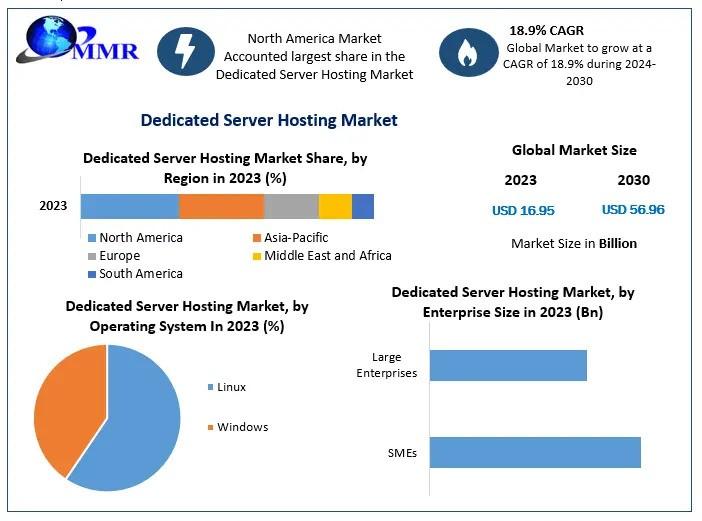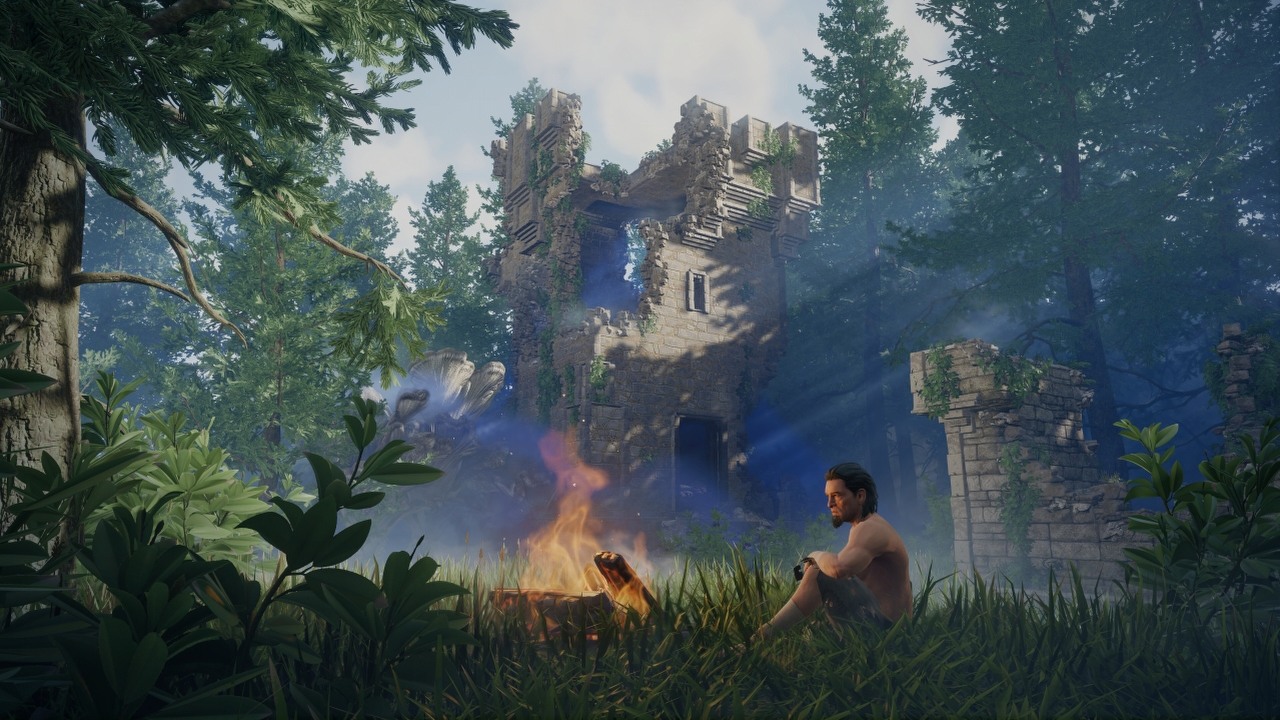Less than a month ago, NetEase announced the foundation of T-Minus Zero, its newest triple-A Western studio helmed by industry veterans like Studio Head Rich Vogel (who led development on Ultima Online, Star Wars Galaxies, and Star Wars: The Old Republic), Game Director Mark Tucker (credited for his work on Crimson Alliance, Doom, and Fallout 76), Art Director Jeff Dobson (who worked on Star Wars: The Old Republic, Dragon Age Inquisition, and Mass Effect Andromeda), and VP of Operations & Production Scott Malone (credited on Doom, The Elder Scrolls Online, and Fallout 76).
I’ve recently had the pleasure of talking with Rich Vogel and Mark Tucker for more than half an hour. Despite the considerable MMO credits of the founding members, T-Minus Zero won’t be making a massively multiplayer online game. Their first project will instead be a session-based third-person action game, although one with a persistent layer wrapped around it.
Interestingly, it will be inspired by a sci-fi IP available in the public domain. Moreover, the developers are planning ambitious features never before seen in multiplayer games, though it was too early to talk specifics.
Of course, our conversation ranged much wider than that, from their engine of choice (UE5) to the potential usage of generative AI, the recent closure of several game studios, their work policy, and more. Keep scrolling to read the whole edited interview.
Can you talk about the foundation of T-Minus Zero?
Rich Vogel: A little over a year ago, Mark and I talked about potentially forming another studio. This is my fourth one. I took a break after my third one, I went to work for Certain Affinity for a little bit.
After a while there, I said, it’s time to do this again. Suddenly we said, let’s do it. Now, of course, when you say let’s start a studio, the first thing you gotta do is find funding.
We talked about an idea that we wanted to do for a game and then we went around looking for potential publishers or equity partners. We had offers for both first-party and third-party. Third-party offers were really equities-type funding. Out of everyone that we talked to, we really liked NetEase. I’ve known NetEase for a long time. Back in 2007, I met them in China. I really like their philosophy. The people that are in their executive group are game developers. They actually built and made games themselves, they understand what went into it. We just aligned with the vision we want to do, the type of culture they have, and the type of culture I want to create. We had two different first-party offers and I really liked theirs best.
As for the equity side, I’ve done that once. You have the issue of always being in demo mode, you’re always chasing the money. You never relax from that. I felt like that was not where I wanted to be. I’ve been there before; what happens is you make short-term decisions that are not great for the game because you want to survive, and I wasn’t into that.
When you join a company with a first-party deal, you have to make sure the marriage is great. So far, it’s been fantastic with NetEase, even beyond my expectations, actually. I’m happy to be part of their expansion to the West.
Do you already have a size goal in mind for T-Minus Zero?
Rich Vogel: One of the things I’ve learned from doing this is not to go too fast and expand too far until you really hit the soul of the game. We’re gonna keep our team small, we have about 10 and we’re gonna grow to around 35. Once we have figured out the core loop of the game, I have no issues with expanding the team. Still, our goal is not to get over 100 even then. It really depends on how successful we are, though. We may grow a little more. Another reason I like to start small is that we’re a remote first studio and we go where the talent is.
That makes sense. I guess it’s fair to say that you’re going to prototype a lot until you find the fun, so to speak.
Rich Vogel: Absolutely. The first thing we’re gonna do is find the core elements, put them in the game first and foremost, and play it until we feel comfortable with what we’re doing.
Mark Tucker: We approach the game like the layers of an onion. We’re gonna focus on the core moment to moment and ensure we nail that before adding the additional layers. So, yeah, we have to stay small and find that core loop.
I’ve read one interview which went into some detail regarding your first project. It sounds like you’re making a session-based third-person action game, right?
Mark Tucker: That is correct.
And it’s not a Battle Royale, right?
Mark Tucker: Yeah, we’re not going to make a Battle Royale. It’s definitely an ambitious project. We’re doing something that really hasn’t been done before. In addition to that, we are creating a new IP. It is going to be sci-fi based. With that IP, we are heavily influenced by an IP that’s available in the public domain, and it’s globally recognized.
We’re going to take that and we have some ideas on how we can change it up a bit and make it our own. We’re working on that now and yeah, we’re doing some really ambitious things that you haven’t seen before in multiplayer games. Part of the reason why we feel comfortable taking on something this ambitious is that we have an extraordinarily experienced leadership team that has made a lot of great online multiplayer games and games as a service. Also, we have a great company that’s backing us on this and is clearing the path for us to do our best work.
I think the stars are really aligned for us here. In addition to that, as Rich has mentioned before, we are remote first. That removes a lot of the friction to getting some of the best talent in our industry to join our team and help us with this lofty endeavor. I am super excited about it, I really do look forward to being able to share more details in the future.
What we want to do first is prove out this thing that we want to build. We’re going into prototyping to make sure we can create that player fantasy that we’ve imagined. We don’t want to set expectations too soon, right? That’s kind of where we’re at.
Rich Vogel: I’m a big believer in that. As you’re building a product, you are making course corrections all the way along the way, and it may not be what you talked about originally. It may end up something totally different. We like to keep that under wraps ourselves until we feel more confident in what we’re building. Usually, that’s when we get the first players in.
Speaking of the IP you’re using as your inspiration, the speculation made by Video Games Chronicle in that interview is that it’s The War of the Worlds from H.G. Wells’ novel. Can you confirm or deny or comment in any way?
Rich Vogel: If we said anything about this you would automatically know what it is. I will tell you that we can’t comment on anything about the IP.
It is recognizable, that’s one thing that we liked about it. Anybody who sees this knows what it is. We do want to make it ambitious because, in my opinion, the only way you can stand out in today’s market for so many forms of entertainment today is by building something that people will say ‘I want to go play that’ and that’s why we want to take this ambitious project on.
Maybe you can share something about the core gameplay that you’re envisioning. For example, you said it’s action-based, but is it going to be more of a shooter with a lot of ranged combat, or does it also have melee combat?
Mark Tucker: We’re not quite ready to go into that level of detail just yet. There are things that we’re gonna be focused on, but as Rich mentioned, once we start prototyping, we might discover some things that we hadn’t anticipated. What we’re calling it right now is a third-person action game. We’ll stick with that for the time being.
You’ve also said it will have a persistent layer to it without the MMO grind. Can you expand on that point?
Mark Tucker: Yeah, we will have a persistent layer. As we’re developing this game, one of our philosophies or mantras is to get to the fun fast. We really want players to be able to get in and have a great time.
We feel the audience has shifted a bit in that players don’t really like the grind. We’re going to be building something that takes the players’ time into account. We don’t want people to feel like they’re wasting their time playing our game. We want to remove those friction points and make sure they’re just having a great experience. That’s also why we’re focused on a session-based title, because those tend to be able to do that better.
You hop in the matchmaking queue or whatever and get into the session. You have a great experience for 20 to 30 minutes, and you can be done. If you have time, you can do it again and again and again, but there’s not a lot of downtime in between. You’re really able to maximize your enjoyment of the game and be in the fun fast and focus on that.
Rich Vogel: This is mainly aimed at the new generation of gamers, whereas the older generation was more used to slower and more grindy titles.
I have to say, as an MMO fan, I like the old way, though of course, without too much grinding.
Rich Vogel: We will have systems for people to chase goals into the game. We will have those in there. We just want to get to the fun fast, that’s all.
Is that persistent layer going to consist of an RPG-style progression?
Mark Tucker: We’re not ready to talk about that just yet because as I mentioned before, we’re approaching this like layers to an onion. Right now, we’re gonna be focused on that core loop.
We have thoughts, ideas, and goals that we at T-Minus Zero want to achieve for that persistent layer. But that will be heavily informed by what we discovered through our prototype processes.
We’re ironing out our core loop, so it is a bit premature for us to talk specifics on that. We have goals and things that we want to achieve, but I think it’s best for us to wait and talk about that at a later date when I can give you better details and set the right expectations.
Will your first project at T-Minus Zero be a cross-platform game available on PC and consoles?
Rich Vogel: Yes, that’s our goal. I think anybody who makes an online game now would be crazy not to enable cross-play.
Fair enough. Have you already settled on the engine tech you will be using?
Mark Tucker: Yes, we are developing our game in Unreal Engine 5, which we’re super excited about. It sets us up for getting into our prototype very quickly. There’s tons of developer experience there that we’re looking to leverage as we’re growing our team. We’re really excited about building it on UE5.
They’ve got all kinds of great tech that they’ve added recently and continue to add. Their lighting system looks fantastic. They’ve got some animation systems that we’re looking at. It’s great because they have a huge team that’s constantly improving the engine.
They’re also using those improvements in their own games, so they’re battle-tested, and that removes the need for us to have to go write all that stuff on ourselves and we can really focus more on the specific needs of our game. There’s some really cool stuff they got in on Unreal 5 that we’re just starting to scratch the surface on.
When it comes to generative AI, it’s a big topic for every industry right now. Do you think it can be helpful in game development? Are there any risks to using it?
Rich Vogel: When I look at generative AI, that whole part of finding the fun, that’s something generative AI cannot achieve right now. That’s why you need that human element, in my opinion. Generative AI is a toolset to help us generate content faster, to iterate faster. That’s why I see it as a tool.
I think that when building a game and making it fun, the human factor will have to be there for a long time. We don’t have awareness in AI yet, it’s a very narrow-based AI they call it. It only uses the data input and an output comes out of it. To me, it’s just a very complex form of autocompletion, like something able to complete your sentence. I think that there’s lots of ways you can use it to help generate different types of content.
But again, that human factor will play a huge role in developing these games. I think generative AI just going to make our lives easier to build content a little faster than we currently can today.
I see it that way as well. I believe it could also help make NPCs more convincing in certain games.
Rich Vogel: Yeah. It can do what I call faux awareness. It’s not real awareness, but it can make the world a little bit more immersive. Absolutely, it can do that.
Again, it takes that human element to make good encounters that are compelling and people want to come back over and over again without a doubt.
One of the things I always tell people is that procedural doesn’t equal fun, and automated things don’t mean fun. There are a lot of things that make up what fun is and it’s not necessarily making a whole bunch of systems in a game that you just go grind through that may not be fun, right?
Are you potentially open to using generative AI at T-Minus Zero?
Rich Vogel: We’re open. Again, whatever comes out, anything that helps us get our content built faster and achieve better quality, we’ll look at those things. Absolutely.
Whether we use it is to be decided, but we’ll look at what’s coming out and see if it’s useful for us. Keeping our team size small is important to us right now, so we don’t have to expand a lot of people and we can use some tools to help us build the content faster.
The nice thing about NVIDIA is that they’re putting chips out that actually handle a lot of computing power. That’s nice when you want to do a client-server online game where you can offload some of the CPU. What happens is when you have a world, the more NPC you have in the world, they’re called heartbeats, the less players you can have in the world, right? Because you’re keeping track of all the stuff. So if you have things you can offload through hardware through chips, that’s even better. It allows us to even push some boundaries on creature AI and things like that.
Are you looking to use dedicated servers for your game, or will it be peer-to-peer?
Mark Tucker: Given that we’re focused on creating a service, it will most likely be a dedicated server. That will offer the best experience that we want for our players and also help us just make sure that we’re able to prevent any potential cheating, griefing, and things like that.
But it’s really about offering what we think would be the best experience. Right now, for what we plan to build, that is the architecture that makes the most sense.
You’ve said that T-Minus Zero is a remote-first studio, but I understand you also have an office in Austin, right?
Rich Vogel: Yes. Let me explain that. We’re remote first, but we offer the Austin office as a hub and spoke model where I look at key areas to recruit in and build up.
This is what I want to try to do: build up people around that area so we are able to have a WeWork or something like that where people can go in if they want to. We’re gonna meet every quarter anyway and have people flying, that’s how you build culture. Facetime is, in my opinion, important to build culture.
If you build around those hubs that I talked about, wherever they are, if we can get some good talent in those areas, they will form a WeWork for people to come in if they want to and talk and gather and we can rotate around to places. North America, for instance, is a good example if we get enough people in different areas.
I think you still need that facetime in my opinion to develop a good studio culture. So we will do quarterly meetings where everyone gets together and we can have sessions together, play videogames, board games, and talk about the game that we’re building as we move along because you can’t get that soon.
I was wondering if you would also be collaborating with other NetEase teams. For example, you actually have one in Austin, Jackalyptic Games from Jack Emmert, whom I interviewed a short while ago in regards to their Warhammer MMO.
Rich Vogel: Absolutely. We will because a lot of those people worked for me at my other studios that I formed and they are now working for Jack’s team. And yes, we’ve been collaborating for a while and we will continue to collaborate. We’re both building online client-server games, so we can share technology. We do a lot of things together. It’s great to have that back-and-forth between these two studios, in my opinion.
Mark Tucker: In addition to that, NetEase has a lot of other teams that they’ve built purposely to help out their studios. For example, a recent team that they’ve been putting together for North America is their user research group that’s set up to help us do user testing on our game all the way through development so we can learn where problem areas might be and we can address it as we go. They also have groups of artists, designers, and engineers who can come in and help and support us.
Not only do we have other studios that we can work and share tech with, but NetEase also provides us with additional groups that can really help us throughout development and beyond, to make sure that we’re hitting that quality bar that we wanna hit.
On that note, other famous game creators who have joined NetEase, like Suda and Nagoshi, have recently stated that NetEase is about quality first, not pushing their studios to release a product before it’s ready. Is that your assessment as well?
Rich Vogel: That is the alignment I talked about earlier because the other people we met were talking about deadlines and other such things. When we met with NetEase, they said they wanted a quality game and I said, yes, that’s what we want to do too.
We certainly want to make sure we have time to do that because what we’re doing is very ambitious, and we’ll need the time to prototype and iterate on to make it work.
My final question is about the state of the industry in which T-Minus Zero is being created. Four studios were closed in the same week: Volition in the United States, Mimimi in Germany, Ronimo Games in the Netherlands, and Black Eye Games in Poland. What’s your take on that? Is it just a byproduct of the industry’s strong competitive factor?
Rich Vogel: That’s a great question. There’s lots of factors and I don’t know all of them; I’m blind to some of the recent decisions. I think that during the pandemic, the player numbers in games rose. However, you can’t sustain that. It was just an unpredictable event that occurred.
There were a lot of investments and super acquisitions during all that time and now the market’s gotten back to be adjusted to where it was pre-pandemic.
Still, I think the gaming market has risen as far as the number of players goes because of the pandemic. If you’re a smart company, you really want to invest now because if you contract now three years down the road, you won’t have much to show. That’s when the market is going to really take off again. There’s lots of opportunity there to invest and I think that NetEase is set up to do that.
It’s all about how you administrate your company, what decisions you make and sometimes they end up in a situation where they have to do contract work a little bit in order to survive.
It’s sad to see Volition go, they have a 30-year-old studio that built some really great titles I enjoyed playing. I felt really sad for the team. I’ll say we have openings at T-Minus Zero.
I guess the upside is that there are many, many companies hiring, so they should hopefully find work rather quickly, especially with several studios accepting remote work nowadays.
Rich Vogel: Right. They can find work. But, you know, working for a studio 30 years old, there’s a whole history there and everything you’re leaving behind. The hardest thing to do is lock the door when you leave. It’s tough.
Mark Tucker: I feel for those developers. I’m sure there were probably a lot of people there who have spent their whole careers or the majority of their careers there.
That’s really hard. Unfortunately, this is a bit of a cycle that our industry goes through. After doing this for more than two decades, there is a bit of a cycle there where you have these ups and downs, expansions and contractions. But as Rich mentioned earlier, I look at NetEase and the strategy that they are making and I think there’s some interesting opportunity that they’re seizing the moment.
For the developers that have lost their jobs, we are hiring and looking for some very experienced talent. We don’t need you to relocate to join our team. Hopefully, once the dust has settled there, we might be able to create some opportunities for some of those folks.
Thank you for your time.
https://wccftech.com/t-minus-zero-qa-neteases-latest-aaa-team-plans-ambitious-things-never-before-seen-in-online-games/







